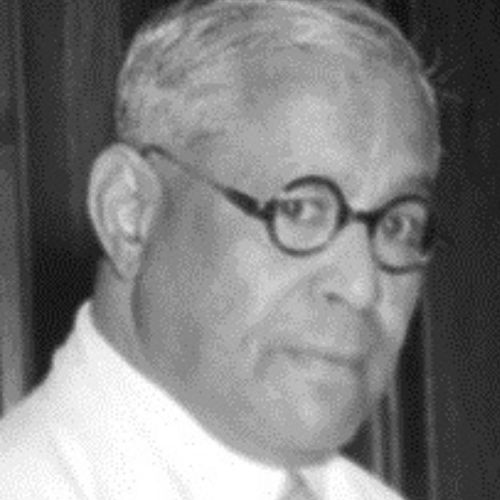Early Life
Challiyal John Matthai was born on 10th January, 1886 into an orthodox Syrian Christian family in Kozhikode. His graduated with a degree in economics from the Madras Christian College in 1906. In 1908 he joined the Madras Law College, and completed his B.L in 1910. He later pursued his doctoral research at the London School of Economics and Political Science, as well as a B.Litt. from Balliol College, Oxford.
After returning to India in 1918, Matthai became an officer on special duty with the co-operative department of the Madras Government. A keen academic, he also taught economics at Presidency College till 1925. He became an active government servant, who served on the Legislative Council and led important committees and departments relating to finance and statistics. Due to his economic acumen, he was appointed as a Director by Tata in 1940.
Mathai was one of the architects of the Bombay Plan, which was hailed by the then-Viceroy of India Lord Wavell as a solution to India’s economic problems.
Role in India’s Independence Movement
Matthai did not play an active role in the freedom struggle. Instead, he devoted himself to government service and academia. He was a member of the Viceroy’s Executive Council, and later was part of the interim government.
Contribution to Constitution Making
Mathai was elected to the Constituent Assembly from the United Provinces on a Congress party ticket. He delivered important clarifications in the debates related to taxing provisions. He supported fostering industrial development in the country.
Later Contributions
Post-Independence, he served as India’s first Railway Minister. After the presentation of the first budget in 1948, he was appointed as the Finance Minister. He presented two budgets between the years 1949-51, post which he resigned following protests regarding the vesting of huge powers in the hands of the erstwhile planning commission.
After his resignation, he was the chairman of two entities in succession: the Taxation Enquiry Committee, and the newly constituted State Bank of India. He then became the Vice Chancellor of Bombay University (1955-57), and later of Kerala University (1957-59). As a result of his contributions to the field of education and public service, he was conferred the Padma Vibhushan in 1959.
Mathai passed away in the year 1959.
Key Writings
As an academic, Mathai was a keen writer with a number of publications. His most well-known writings include Prisons of our mind and the Road to freedom, Village Government in British India, and India and the War.
Mathai intervened in the debate surrounding Article 264, clarifying the scope of the provision and arguing in favour of modifying the system of direct taxation.

